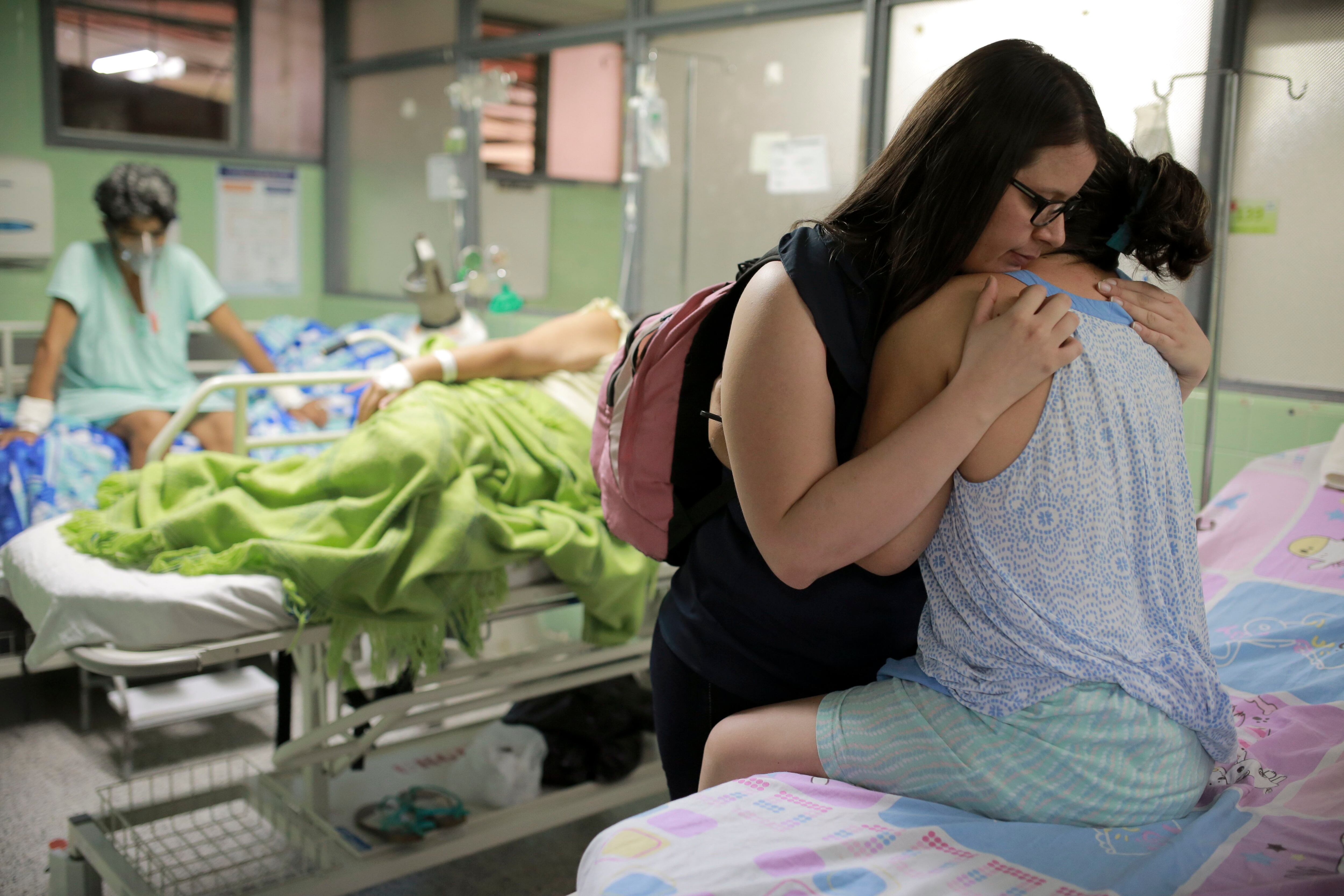/cloudfront-eu-central-1.images.arcpublishing.com/prisa/QPIXWYQZRRBGTK7MLQJKEOT4MM.jpg)

William Chávez, 63, is one of the 72 confirmed cases of Guillain Barré Syndrome (GBS) in Guatemala, a disease that has left him unable to walk and has kept health authorities and the population on alert for the past month. The Ministry of Public Health and Social Assistance (MSPAS) has registered nearly 100 cases so far this year, both confirmed and suspected — about a third of the 300 to 400 that usually occur annually in the Central American country.
According to the data, patients with this rare disease, in which a person’s immune system attacks the nervous system, are mainly concentrated in three of Guatemala’s 22 departments or regions: Suchitepéquez, Retalhuleu and Sololá, in the southwest of the country. The situation forced the MSPAS to issue an alert a month ago in Suchitepéquez, where most cases have been reported, and where classes in schools were suspended for 20 days, resuming at the end of this week.
Chávez is a retired teacher who sells second-hand American shoes and clothing. He lives in Cuyotenango, a municipality in Suchitepéquez. “It started two months ago,” he tells EL PAÍS. “I had diarrhea for eight days, then my legs and hands felt watery and I fell to the ground. Days before, I felt a tingling in my hands and face, and since then I have been unable to work.”
When the symptoms started, Chávez went to the Guatemalan Institute of Social Security where he is affiliated, but was told nothing could be done about his condition. So he went to a private clinic, where the doctor diagnosed him with GBS. Since then, he has been receiving medication for his nerves, uses a wheelchair and attends therapy twice a week to recover mobility in his legs.
“This outbreak is the first of its kind,” Edgar Santos, director of Epidemiology at the MSPAS tells EL PAÍS. “The epidemiological alert is nationwide. Cases are concentrated in Suchitepéquez, Retalhuleu and the coast of Sololá. There are 72 confirmed cases, five deaths including a minor and 12 suspected cases.”
According to the World Health Organization’s official website, GBS means the body’s immune system attacks part of the peripheral nervous system which can affect the nerves that control muscle movements, as well as those that transmit painful, thermal and tactile sensations.
This can lead to muscle weakness, loss of sensation in the extremities and problems swallowing or breathing. It is most common in adult males. The origin of the disease has not been fully established, but a bacterium causing gastroenteritis is suspected, although it can also be contracted following influenza or other viral conditions such as Zika.
Contaminated water
Chávez says that the neighbors suspect that the water they use in the town may be the cause of the disease because it is undrinkable. This coincides with a report published this week in a local newspaper that said that the water in Cuyotenango tested positive for fecal contamination and other microorganisms in two of the six samples taken by health authorities.
At the beginning of the month, there were also suspicions that chicken being smuggled in could be a transmitter of GBS, so the authorities have increased operations to clamp down on this activity, though the theory has not been confirmed.
MSPAS has issued a statement advising Guatemalans not to be alarmed as the disease is not contagious and can be classified as a “specific sanitary outbreak” rather than an epidemic. As for the three southwestern regions dealing with most cases, the recommendations, according to Santos, are to wash hands thoroughly, boil or chlorinate water and prepare food hygienically. “We could be seeing a decrease in cases, but we cannot be confident,” says Santos. “We are working on it.”
Meanwhile, Chávez was told by his doctor that recovery could take between eight and 10 months. Guatemala is a country with a precarious healthcare system, ill-equipped to deal with epidemics and health scares. During the coronavirus pandemic, it had one of the slowest vaccination programs in the Central American region. It registered 1.2 million infections and 20,283 deaths.
Currently, the MSPAS is waiting for the results of four more water tests in the Cuyotenango region to confirm the possibility of contaminated water being behind the GBS outbreak.
Sign up for our weekly newsletter to get more English-language news coverage from EL PAÍS USA Edition